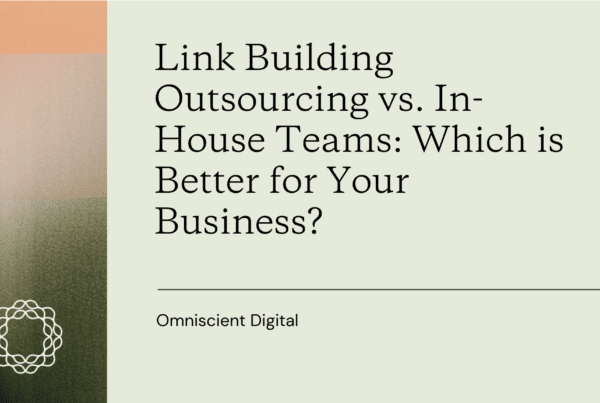
Freelance content creators wear a lot of hats while working their day jobs: writer, business manager, and client liaison, to name a few.
The key to maintaining your professional career? Grow your skillset—both in writing and in running your business.
As the founder of Stories By Us and co-host of the podcast Freelance Writing Coach, Emma Siemasko knows a thing or two about finessing the freelance life.
Here are her top tips for how freelancers can uplevel their business and writing skills to help their reputations grow.
#1: Cultivate your managerial side
To succeed as a freelancer, you must actively manage your projects to make sure you’re hitting deadlines and keeping clients happy.
Emma has found this to be especially true when she is writing up case studies, which have a lot of moving parts.
“You’re relying on other people,” Emma said. “You’re relying on your client to give you a customer to talk to you, you’re relying on the customer to schedule a conversation with you, and you are relying on yourself to get the different parts of the project done.”
No one else is looking over your shoulder to make sure you complete your projects on time, so it’s vital that you keep track of what, how, and when tasks need to be completed.
Freelance management is a twofold endeavor: you have to manage your projects and your clients. If you want to build your business as a freelancer, make sure you are paying attention to both of these aspects.
“There’s this project management slash client management side that I think you need,” Emma said. “You need to refine those skills. It’s almost a little bit more like being a salesperson or something, in that you’re just like the account manager. You’re the face of the brand.”
Staying on top of both projects and client needs can be tricky, but your reputation depends on your ability to manage both sides well.
#2: Have a goal in mind
To make your client’s ideas come to life, you have to know what they want from the project they are asking you to complete.
“When I’m working with my clients to define why are we doing the case, I try and make sure that we’re always doing it with a goal in mind,” Emma said.
If you dive into a project without knowing what your client wants, you’ll end up wasting time working on things that aren’t relevant to the client’s goals.
To determine your client’s goals, Emma recommends asking questions that filter out what the client does and doesn’t want from the outcome of their project.
Knowing your client’s goals helps you plan accordingly to make the most of your time and theirs.
If you can nail down what your client wants for their project and why they want it, you’ll have a roadmap that will guide you in the right direction.
#3: Minimize your tools
An overabundance of project management tools bloats your business and makes you waste more time than you save.
Emma thinks that the more tools you have, the more time you’ll spend sorting out which ones to use instead of getting to work on your tasks.
“It’s not that I’m not about tools,” Emma said. “I use tons of tools. I have a defined process, but I just feel like for some people it’s very bloated compared to what I do.”
She recommends finding the tools that are most helpful to you and sticking with them instead of bloating your business with unnecessary tools.
The end goal is to complete your projects for your client. Ask yourself which tools can help you get there the fastest and rely on those.
“My thing is like, well, what’s the minimum thing you need to do the task and get it done?” Emma said. “Let’s not bloat out your business with project management tools and all these tasks, let’s make sure that you’re delivering what you say you’ll deliver on time, and that you have some process here.”
Don’t invest your time in tools that aren’t worth it. Be critical when choosing which tools to use for your projects and don’t be afraid to get rid of what’s not working.
#4: Learn from your community
Connecting with other people in your field can help you keep your skills sharp and build relationships.
Emma loves finding master classes or workshops to join, because the relational environment pushes her to grow.
“I joined a mastermind a few years ago that was a number of other content writers and copywriters,” Emma said. “I was in it for a year. And that really helped, because I was talking with people and workshopping ideas.”
As a freelancer, working alone and at home increases your need for community, especially in the professional world. If you want to grow your skills, you have to interact with and learn from others.
“For me, the way that I uplevel is collaborating with others and learning from other people,” Emma said.
Find the community that inspires you to work harder and improve your craft, whether that’s an in-person class, a virtual group, or even employing a personal coach. You’ll grow better if you grow alongside someone else.
#5: Build your business on relationships
Connecting with people—clients, subcontractors, and even other content creators—is a vital part of freelance work.
Emma calls relationships the lifeblood of her business. Her success is built on the relationships she has forged over the years, but the benefits of those relationships go both ways.
“Connecting with people is not just for my benefit as a business owner, but also so that I can help them,” Emma said. “I just feel like the relationship part of it is so important, and I can learn so much from other people, and they can learn from me. So I try and find ways to bring those relationships more and more into what I do.”
Relationships help you retain clients and network new projects, but they also fulfill an intrinsic need for community.
“If you’re a freelancer and you work by yourself, it’s even more important to connect and to solidify those relationships,” Emma said.
Cultivate strong working relationships with others to help your business flourish. You’ll benefit your clients and yourself.
Freelancing is no easy task, but if you keep pushing yourself to be better and uplevel your skills, your career will continue to grow.


